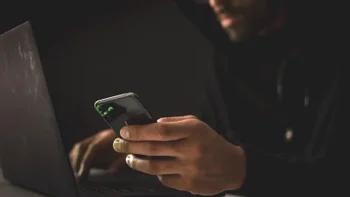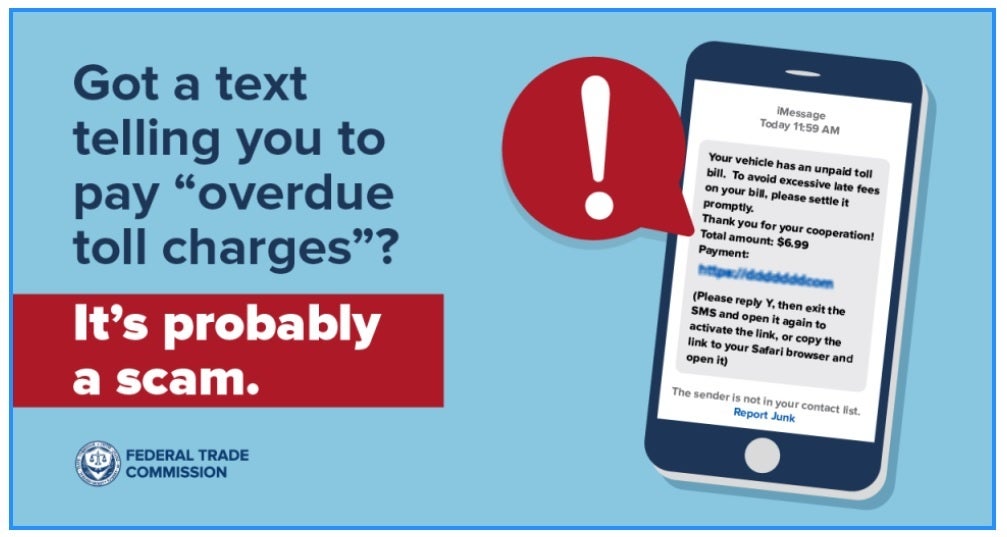U.S. government warns all iOS and Android users to delete these texts immediately

All iOS and Android users need to be alert to a new scam that the FBI says is moving from state to state. Those being scammed receive a text message on their mobile devices warning them that they owe money for unpaid road tolls. The FBI says those who received such a letter need to delete it from their devices immediately. The Federal Trade Commission (FTC) has issued its own warning that further explains how the scam works.
First, you'll receive a text supposedly from a toll agency stating that you owe for unpaid tolls and you need to pay it immediately. It will take you to a page that will allow you to type in your bank account or credit card account information. If you do click on the link to pay, the scammer could end up with other personal information such as your driver's license number. Armed with your financial account info and driver's license number, the scammers might not only steal your money, but could also steal your identity.
The FTC recommends that when you receive any texts from someone you don't know, never click on a single link. The scammers try to get you to act emotionally and respond quickly by making certain threats. If you receive a text demanding that you pay a toll under the threat of having your driver's license suspended, most likely you'll make the payment instead of taking the time to investigate the legitimacy of the text.

The latest phishing scam revolves around fake unpaid tolls. | Image credit-FTC
The FTC also suggests that you use the "Report junk" option on your phone to report unwanted texts. Or, you can forward them to 7726 (SPAM). Similar to what the FBI suggests, once you've checked out and reported the unwanted text, delete it immediately. It should be noted that these warnings are not coming from security analysts but from government agencies like the FBI and FTC.
While this is being called a new scam by the government, it is simply another phishing scam since the text is written as though it came from a legitimate toll authority. The problem is that sometimes the target doesn't remember whether he drove into a particular state and decides just to pay the amount requested since it seems like the easiest solution. Do not do this. The amount being demanded might not be terribly high, but the ultimate goal of the scammer is to obtain your banking or checking information and clean out your financial accounts.













Things that are NOT allowed: